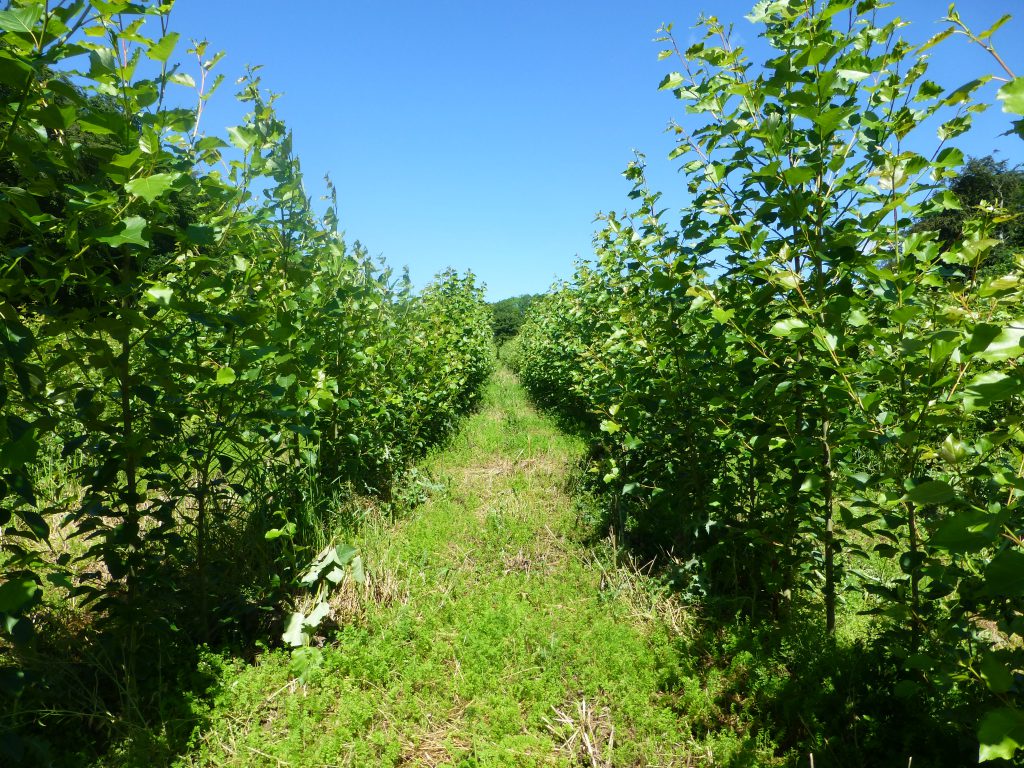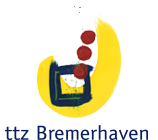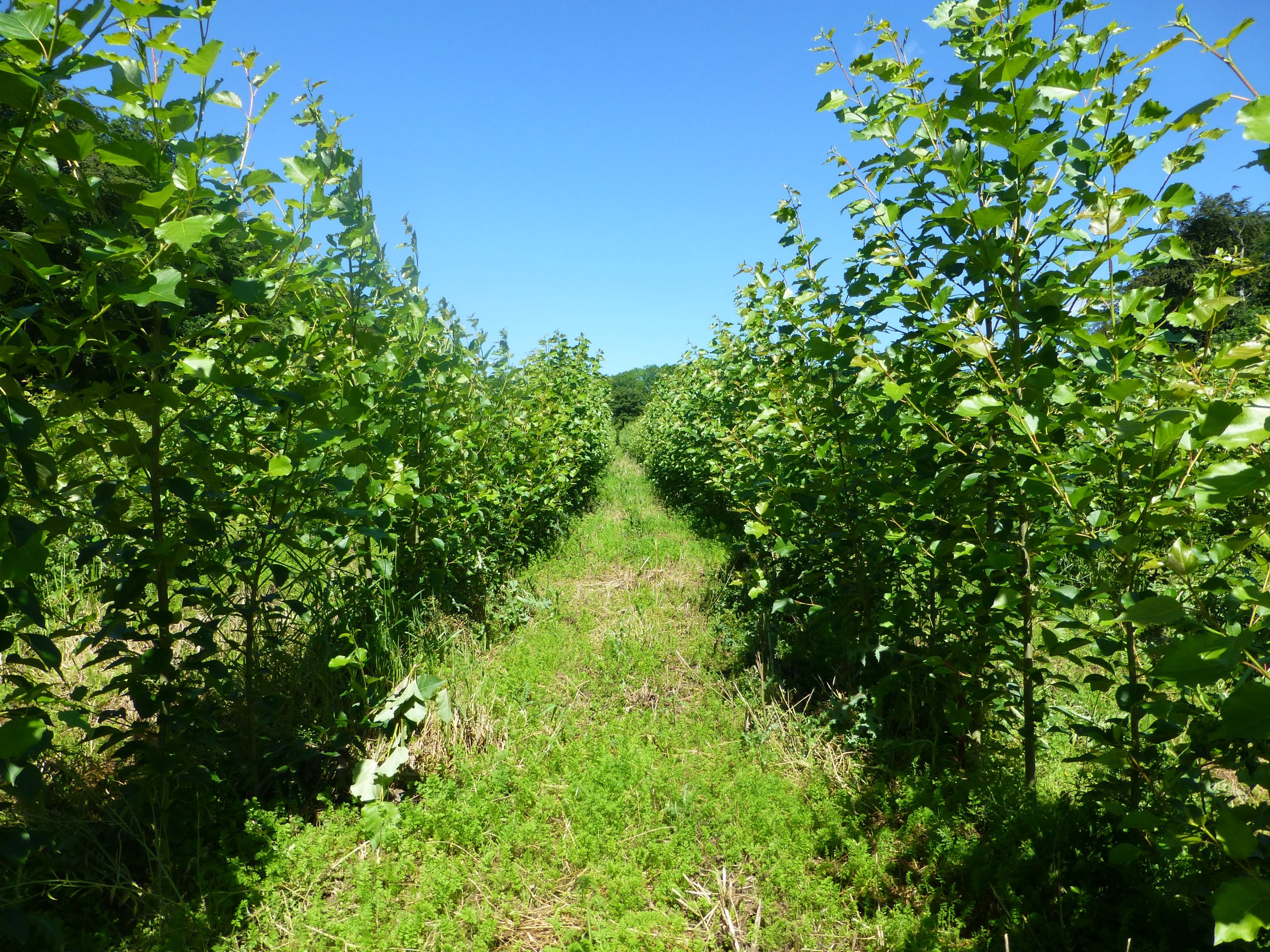ROKWOOD, an EU project, presents a concept for the sustainable production and efficient use of wood energy from Short Rotation Coppices (SRCs) in European regions. Marketplace for SRC players now online.
Bremerhaven, March 2015. As a renewable energy, biomass is becoming more and more important in Europe. In order to cover the growing demand for biomass raw materials as energy carriers, what are known as Short Rotation Coppices (SRCs), where fast-growing trees are cultivated within short rotation periods, are increasingly popular. The potential recognition of SRCs as what is referred to as “greening measures” in the framework of EU agricultural policy and related betterment can give the sector a further boost. ROKWOOD is an EU-financed project which supports the cultivation and effective utilization of SRCs in European regions. The objective of ROKWOOD is to overcome local barriers to the development of biomass regions in Europe. One of the principal and already achieved project results is a roadmap to strengthen the sector in Europe.
The roadmap
On the basis of an analysis of determining factors, the consortium identified six fields of action which appear to be particularly important for the success of SRCs. These include the implementation of pilot and demonstration projects in particularly suitable regions, the improvement of knowledge exchange between players, the setting up of an interest group at EU level as well as regular information and demonstration events. Activities have already commenced in the framework of ROKWOOD and the concrete approach was defined in a “Joint Action Plan”. A summary of this plan can be found on the project website under http://www.rokwood.eu/public-library/joint-action-plan.html.
On the basis of an analysis of the political, economic and social conditions for SRCs, various hurdles were identified which occurred in all the participating countries and therefore need to be overcome at European level. These include the fundamentally rather low level of awareness of SRCs and the low level of expertise amongst potential players, an often lacking or incomplete SRC infrastructure as well as limited political and financial support.
The marketplace
The ROKWOOD project partners are convinced that SRCs – once the barriers identified have been overcome – will represent an economically attractive alternative to other types of land use. A marketplace for SRC players and other interested parties is accessible on the project website. 86 players – from producers to users of wood energy – have registered so far. These include farmers, machinery manufacturers, contractors and energy producers.
The research clusters
ROKWOOD fosters cooperation between the six participating European research clusters in Sweden, Spain, Germany, Poland, Ireland and Great Britain with the aim of improving research, technological development and market response. Each cluster has a minimum of three partners and comprises at least one research institute, an SME and a public authority. The project is co-funded under the “Regions of Knowledge” initiative of the European Union’s 7th Framework Programme for Research and Technological Development, the objective of which is to strengthen the research potential of European regions. This takes place in particular by enhancing the development of “research-driven clusters”.
The partners
In addition to ttz Bremerhaven, the other partners are the Regional Planning Authority Altmark and Agraligna GmbH from Germany, the Mazovian Agriculture Advisory Centre, Gmina Zaluski and EKSPERT-SITR Ltd. from Poland, the Andalusian Institute of Agricultural and Fisheries Research and Training, Granada Energy Agency, BIOAZUL and ASAJA Granada (a farmers’ association) from Spain, the Centre for Sustainable Energy, Dorset County Council and Crops for Energy from Great Britain, SP Technical Research Institute of Sweden, Scania’s Association of Local Authorities and SalixEnergi Europa AB from Sweden as well as the Dublin Institute of Technology, Biotricity Ltd. and the Western Development Commission from Ireland. In addition to these partners, EUBIA (the European Biomass Industry Association) has also joined the consortium in order to guarantee broad dissemination of the project results to stakeholders.
For further information:
Press pictures for editorial use (foto: ttz/pr)

Picture 1:
A one-year poplar SRC on a field near Goslar, Germany. The farmer uses the wood fuel produced for carbon-neutral and cost-efficient heating on his farm.
Download with right mouse button: “Save as…”
ttz Bremerhaven is an independent research institute and performs application-related research and development. Under the umbrella of ttz Bremerhaven, an international team of experts is working in the fields of food, environment and health. www.ttz-bremerhaven.de




